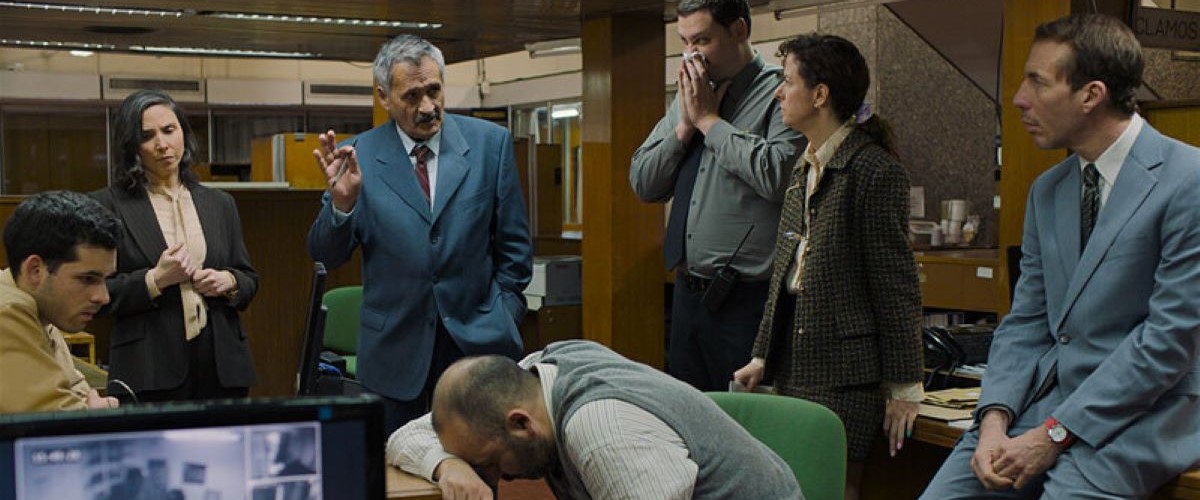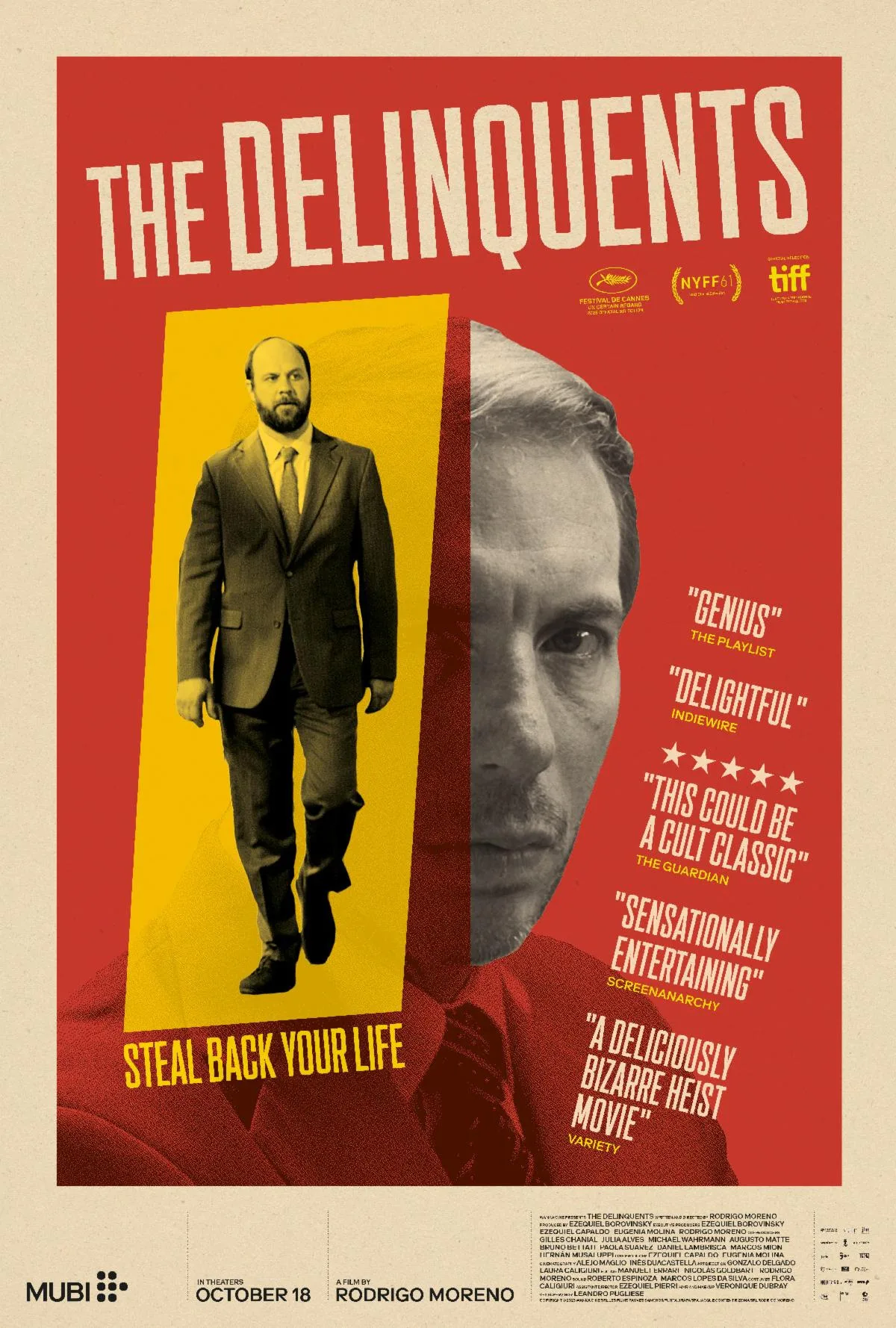In Buenos Aires, a hapless bank treasurer comes up with a plan to change his life forever. He steals substantial money from his workplace, intending to never work again. After the robbery, he meets his similarly depressed co-worker and convinces him to hold on to the money while he serves his time. It’s an odd conversation over pizza at a local restaurant, mostly in the open. But the proposal sounds enticing. What if you could steal just enough money to live without working for the rest of your life? Wouldn’t that be better than working almost daily until retirement or death? Why work to live when you could just enjoy the one life you’ve been given? These are all questions worth contemplating.
Rodrigo Moreno’s “The Delinquents” plays like a philosophical experiment. Morán (Daniel Eliás) steals just enough for a modest retirement and enlists Román (Esteban Bigliardi) to hide the money while he serves his prison sentence. Then, when he’s out, both men can live happily ever after outside the social constraints that currently bind them. Life is meant to be enjoyed, and a few years of anxiety and discomfort is nothing compared to the open life that stretches out before them when it’s all over. It’s a naive notion—that the time spent dealing with the fallout of the crime will be bearable, but if work itself is a prison, perhaps anything else feels like freedom. Of course, that’s easy to say when one has never been to prison or suffered any great hardship beyond life’s normal trials. The conditions of our existence in most societies are such that work is necessary for most people. But despite the confines of working for money in a capitalist society where leisure time is increasingly seen as for the wealthy, it still cannot be compared to actual imprisonment.
But this is a fantasy, and we are not meant to think about the world in literal terms. Moreno gives us just enough reality to relate to the two men and their desire for freedom. Capitalism is a prison in a metaphorical sense, coloring every life decision a person makes. It’s a system difficult to escape from but also a shared misfortune. Worrying about how much things cost, how much rest one can get, where to live, and how to dress is determined by how much money a person has and how much they are willing or able to part with. Everyone except the wealthy is forced to consider these variables, individually and together, within this giant web of commerce and wealth inequality. It’s understandable to want to escape and take control of your future. But what about those left behind?
Román is that person left behind to deal with the fallout of the theft, accused at work of being an accomplice. The bank bombards him with accusations and watches his every move. Security is increased at the bank, and life on the outside begins to feel much closer to prison than anything he’d experienced. Morán doesn’t fare much better in a real prison; he’s immediately beaten for hogging the phone. But after a lecture from one of the older inmates, Morán adapts to the conditions rather quickly. With his mind focused on his future, he can find comfort in his prison cell. He begins to read constantly and adopt a calmer demeanor. We learn that before his incarceration, Morán got a taste of the life he wanted. He met a beautiful woman in the country and spent hours drinking, screwing, and enjoying the simple pleasures of nature. In his mind, all he has to do is wait, and he can return to his rural paradise, picking up right where he left off.
Eventually, on the outside, Román finds himself living the exact life Morán dreams of. Their experiences in nature mirror each other, separated only by time. Román neglects his wife to live out a fantasy with another woman whose easygoing nature feels too good to be true. The woman, Norma (Margarita Molfino), is a sort of sprite-like figure, simply of the Earth with no interiority. But she seems content, perhaps knowing more about the world than us. The men see her as a guide and lover, showing them how to live authentically for the first time. Through her, the story comes undone, revealing the tunnel vision masculinity has afforded the characters. We spend too much time with Norma not to know her at all. But then again, both Román and Morán are like blank slates, with only physical differences. They are both, at the heart, simple men who don’t know how to maintain happiness.
With beautiful cinematography and quiet, contemplative performances, there’s no denying how captivating “The Delinquents” is at the outset. But as the film progresses, it seems to lose sight of itself. Even with a runtime that exceeds three hours, the ideas and characters explored in “The Delinquents” are incomplete. We watch fantasy and reality unfold like a thought experiment, and in the end, we are left to question the point of it all. As a feature-length hypothetical, “The Delinquents” is too easily distracted to deal with its existential questions. Perhaps it’s because the fantasy rural life is divorced from the real world, allowing no intersection or direct reckoning with its philosophy. The only struggle these men face in their rural paradise centers on the affections of a woman. Maybe Moreno is trying to say that once money is taken care of, the only struggle left is love. That’s a nice notion, but the execution leaves us wanting something richer.
This review was filed from the 2023 New York Film Festival. “The Delinquents” opens today in limited release.




















